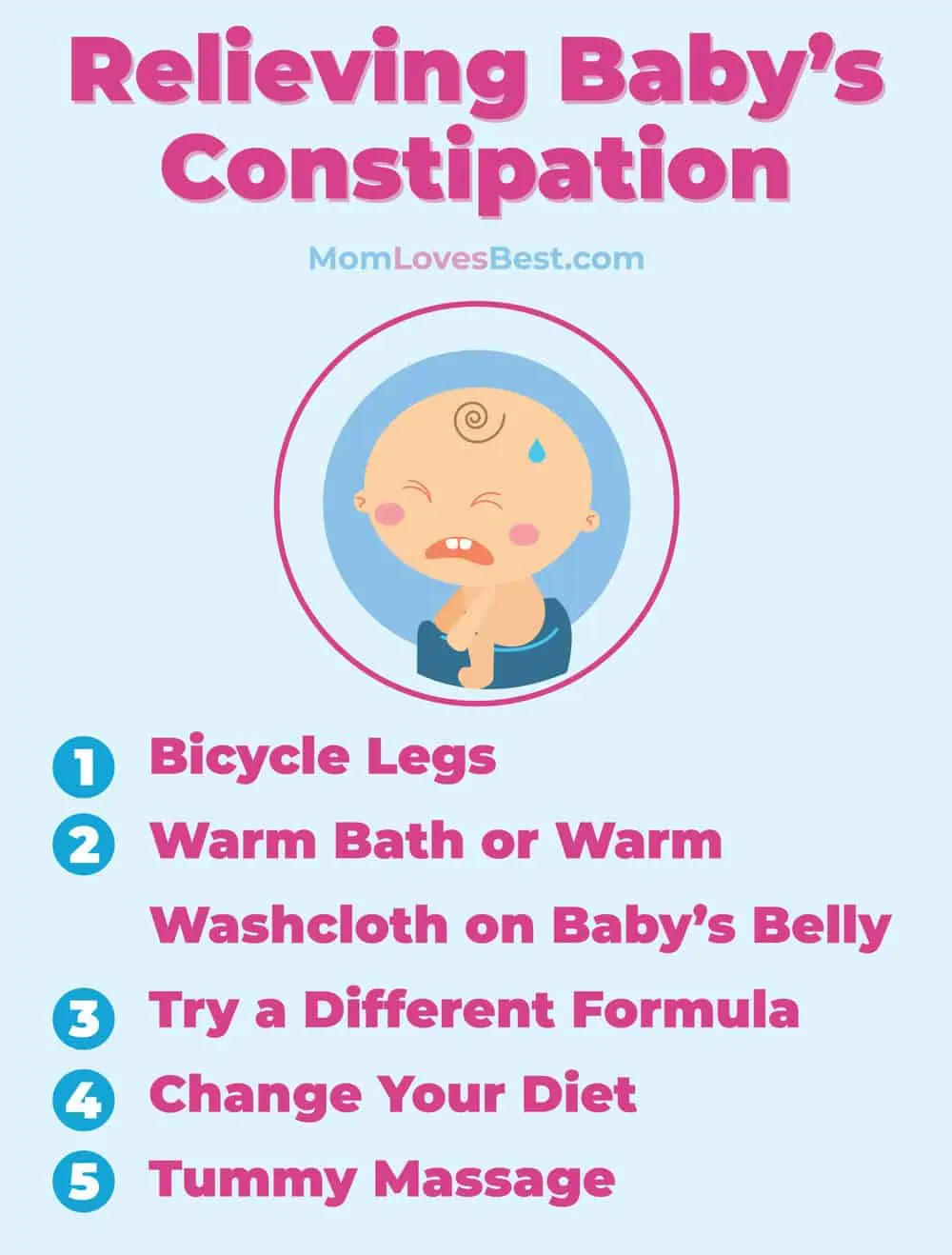It has been days since you last changed a dirty diaper. Naturally, you are starting to worry. While you might secretly enjoy the break from poop-stained clothing, the panic is setting in. Is your baby okay? Are they backed up?
We have all been there. You find yourself obsessing over bowel movements, wondering if your little one is uncomfortable or in pain.
Knowing the difference between a normal pause in pooping and actual constipation can save you a lot of stress. We consulted the experts to break down exactly how long breastfed and formula-fed babies can go without pooping. We will also cover the real signs of constipation, how to treat it at home, and when you need to call the pediatrician.
Key Takeaways
- Normal varies: Infant bowel movement frequency changes drastically based on age and diet; there is no single “right” schedule.
- Breastfed babies: It is normal for them to poop after every feed or go over a week without a single bowel movement once they pass the six-week mark.
- Formula-fed babies: These infants typically poop once a day or every other day, but their stools are generally firmer than breastfed babies.
- Watch the consistency: Hard, dry, pebble-like stool is a bigger indicator of constipation than frequency.
How Often Should My Baby Poop?
Breastfed Babies
“Normal” looks different for every exclusively breastfed baby. Your little one might poop after every single feeding, or they might go days (or even a week or two) without a single poop once they are older than six weeks.
During the first 24 hours of life, your baby’s poop will be a black, tarry substance called meconium. Breastfed babies should have at least three bowel movements within their first 24 hours. As colostrum changes to mature milk, your baby’s stools transition from black to greenish, and finally to yellow, seedy, and loose (1).
Colostrum acts as a natural laxative. This means exclusively breastfed babies usually poop frequently during those early newborn days.
Take Note
Breastmilk is perfect for the human body. It is absorbed so efficiently that there is very little “waste” left to leave your baby’s body. They use almost all those nutrients to grow, leaving you with fewer messy diapers to change.
Formula Fed Babies
Baby formula is slightly harder to digest than breastmilk. Consequently, it is typical for formula-fed babies to have fewer bowel movements than breastfed babies during the newborn stage. A formula-fed newborn typically poops three to five times a day.
After the first six weeks, formula-fed babies typically settle into a routine of one bowel movement every day or every other day.
Common Causes of Infant Constipation
If your baby is truly backed up, there is usually a specific culprit. Here are common reasons for newborn constipation:
- Powdered formula: Formula often creates firmer, bulkier stools. This can happen if the ratio of powder to water is incorrect.
- Dietary changes: Switching from breastmilk to formula, or even changing formula brands, can temporarily disrupt your baby’s digestive system.
- Introduction of solids: When babies start eating solid foods (around 6 months), their poop often becomes harder and less frequent as their gut adapts.
- Allergy or intolerance: Your baby might have an intolerance to the milk protein found in formula or passed through breastmilk.
- Dehydration: If a baby lacks fluid, their body absorbs moisture from the waste in their intestines, creating hard, dry stools.
- Physical issues: Rarely, physical abnormalities like a tight anus or bowel obstruction can cause issues.
- Medical conditions: In very rare cases, conditions like hypothyroidism or Hirschsprung’s disease affect the large intestine and make passing stool difficult (2).
Signs of Infant Constipation
Frequency is not always the best indicator since babies have such different schedules. Instead, look at the consistency of the stool and your baby’s behavior. Here are the major signs your baby is constipated (3):
- Painful passing: The baby cries in obvious pain when stool is actually coming out.
- Tight belly: The stomach feels firm or hard to the touch.
- Hard stool: The poop is dry, hard, and looks like rabbit droppings or pellets.
- Loss of appetite: The baby is eating less than usual due to discomfort.
- Bloody stool: Small streaks of blood caused by tiny tears (fissures) from passing hard stool.
Take Note
Relieving Baby’s Constipation
If your baby is fussy, has a firm abdomen, and is passing hard pellets, they likely need help. Here are some effective ways to get things moving:
- Bicycle legs: Place your baby on their back and move their legs in a circle, as if they are pedaling a bike. This motion relieves belly pressure.
- Warm bath: A warm soak or a warm washcloth on the belly helps relax tense muscles.
- Change formula: Your baby might need a sensitive stomach formula or a different brand. Consult your doctor before switching.
- Dietary adjustments: If breastfeeding, try eliminating dairy from your diet. If the baby is on solids, offer “P” fruits like pears, plums (prunes), and peaches.
- Tummy massage: Gently massage their tummy in a clockwise motion near the navel. Use baby lotion or coconut oil to help your hands glide.
If home remedies fail, consult your pediatrician about these options:
- Rectal stimulation: Taking a rectal temperature can sometimes stimulate the bowels.
- Fruit juice: A small amount of prune, apple, or pear juice (usually 1 oz per month of age) draws water into the stool.
- Glycerin suppositories: These can lubricate the rectum but should only be used under a doctor’s direction.
Take Note
When Should I Worry?
Call your doctor immediately if home remedies do not work or if you spot these warning signs:
- Blood: Bloody or black stool.
- Dehydration: Fewer wet diapers, dry mouth, or no tears when crying.
- Illness: Fever or persistent vomiting.
- Refusal to eat: The baby will not breastfeed or take a bottle.
- Vomit color: Green or yellow spit-up or vomit.
- Weight loss: The baby is losing weight or failing to gain.
- Severe pain: Inconsolable crying for long periods.
Warning
Baby Constipation FAQs
The Poop Scoop
If your baby seems painful, has hard, pellet-like poops, or strains constantly without success, they likely need a helping hand. Try warm baths, tummy massages, bicycling their legs, or a splash of pear juice.
Call the doctor if home remedies fail, if you see blood, or if your baby is vomiting.
However, if your baby is simply popping less frequently but remains happy, eating well, and producing soft stool when they finally go, take a deep breath. Enjoy the break from the diaper changing station!













